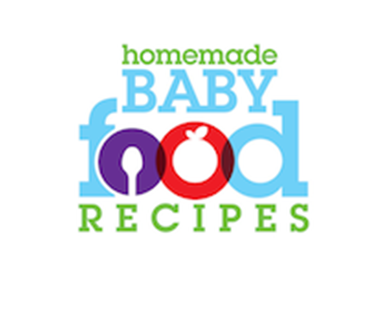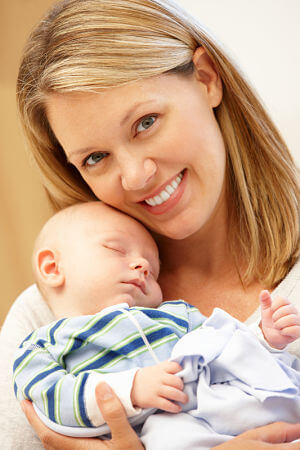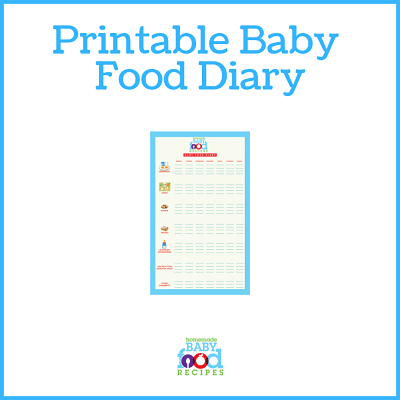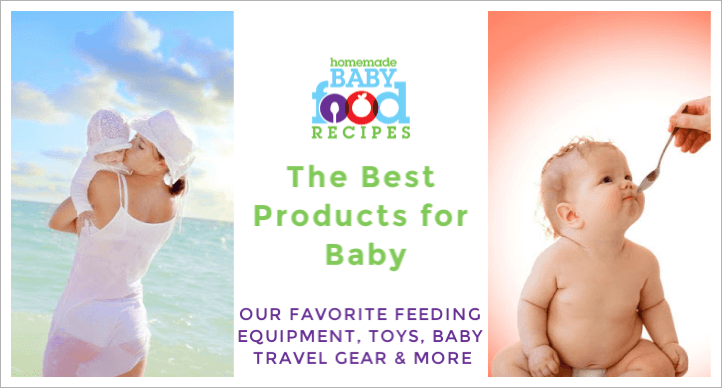How Much Should My Baby Be Eating?
Following Your Baby’s Cues
Updated: July 31st, 2023
How much should my baby be eating at 6 months? At 9 months?
He doesn’t seem to eat as much as other babies – is he getting enough food?
When faced with these questions, the first thing that many of us do is refer to a set of guidelines… a “feeding table”, showing the age of a child and how many teaspoons/tablespoons of food he is likely to be consuming at that age.
These guidelines should be taken as just that – a GUIDE to quantities of solids.
But it can be worrying if your little one seems to eat far less – or far more – than the guidelines suggest.
As with many aspects of solid feeding during the first year, the best guidelines to follow are those set by your baby.
PLEASE NOTE: The information presented here does not replace professional medical advice.
If you have any concerns about your baby’s feeding patterns or weight gain, then you should ALWAYS consult your child’s doctor.
How much should my baby be eating? – Why the guidelines can be misleading
All babies develop differently.
Some start solid foods sooner than others – some seem to have huge appetites… and others don’t!
A baby’s appetite can vary from day to day and is influenced by such things as
- teething (which can make eating uncomfortable)
- temperature and humidity
- how active he is
- feeling unwell
- developmental stages (including “growth spurts”)
With so many factors affecting his appetite, it makes no sense to compare the amount of food your baby is eating with any other baby, or to try and fulfill a rigid recommendation.
Instead, you need to establish what is the right amount for HIM.
How much should my baby be eating? – The problems with trying to adhere to guidelines
If you are told that babies of 8 months should be eating a certain amount – but your baby only eats half that amount – then you are going to worry!
Inevitably, you’ll be concerned that you may be “starving” your child, which could result in your trying to cajole/trick/force your baby into eating more.
This can create all sorts of problems.
Babies are born with a natural ability to judge for themselves just how much food they need…
Studies have shown that healthy babies will eat the perfect amount for them, if presented with a range of healthy foods.
According to the article ‘How to Feed Babies and Toddlers in the 21st Century’ by Susan B. Roberts, Ph.D., and Melvin B. Heyman, M.D, M.P.H.,
"With some simple help from their parents and caregivers, children can preserve their natural ability to self-regulate caloric intake to maintain a healthy weight; be adventurous eaters who enjoy a wide range of healthy foods; be contented eaters, comfortable with family meals and family favorites; and eat an age-appropriate balance of meals and snacks. By learning how to work with, rather than against, children’s natural instincts, adults can actually reduce feeding conflicts while at the same time teaching a lifelong enjoyment of healthy foods."
When your baby has had enough to eat, he will usually let you know, by…
- refusing to open his mouth
- turning away from the spoon/pushing the spoon away
- becoming restless in his highchair
- leaning back in his highchair
It is far better to respect these cues from your baby than to try to continue to feed him when he is full, which could leave him with that bloated, uncomfortable feeling we are all familiar with if we’ve over-eaten.
But by giving him more calories than he really needs, you also risk excessive weight gain, a problem which could stay with your child for some time to come.
He may lose the ability to discern for himself when it’s time to stop eating.
This is particularly significant if you introduce solid foods to your baby before he actually needs them – studies show that obesity can be the result of early solid feeding.
How much should my baby be eating? – Concerns that your baby is not eating enough
First and foremost, it’s important to remember that breastmilk or formula should be your baby’s primary source of nutrition for much of the first year.
So, as long as he is nursing regularly or consuming an adequate amount of formula, then it should not present any major problems if he’s not eating as much solid food as you feel he should.
For a good part of the first year, the purpose of giving solid foods is mainly to introduce your baby to new tastes and textures and to help him master the techniques needed to eat solid food, in preparation for the full transition from his “liquid diet”!
Besides, he may be eating more than you think…
Some doctors recommend making a list of everything your baby eats over the course of 3 or 4 days.
You may find that your baby actually ate quite a lot on one of those days – and very little on the others!
But the quantity of food consumed across those 4 days was probably sufficient for that time period… even though your baby ate it all in one day!
Even if your baby isn’t a “binge-eater”, you may still discover that the small amounts he manages to eat each day actually add up to more than you realize!
How can I be sure that the nutrition he’s receiving is adequate?
Is your baby active and happy?
If so, it’s likely that he’s receiving adequate nutrition.
An under-fed baby would very likely be relatively listless and discontented.
Is he producing plenty of wet nappies/diapers?
Babies generally produce wet nappies on a pretty regular basis!
If he remains dry for longer than 8 hours, then you should mention this to his doctor.
Growth charts and spotting a failure to thrive
Babies grow at an amazing rate during their first year, often tripling their birthweight and growing by approximately 10″ in length.
Spurts of growth during this period are often reflected in your baby’s appetite – but towards the end of the first year, the rate of growth slows and many babies’ appetites reduce accordingly!
Your doctor tracks your baby’s growth throughout this period using a growth chart by which an individual growth pattern is established and monitored.
In other words, your baby’s rate of growth is not determined by comparisons with other babies, but is based on his personal pattern of growth.
Your doctor is able to tell you whether or not your baby is growing at a normal rate – in which case his nutrition is adequate, no matter how inadequate it may seem to you! – or whether a “failure to thrive” exists.
In this situation, your doctor will advise you on the appropriate course of action.
Possible causes for weight loss or slow weight gain
- Once your baby’s level of activity increases and he begins to crawl, toddle or walk, then you may find that the rate at which he gains weight reduces.
This is quite normal – all that extra activity burns a lot of calories! - If your baby has been unwell for a few days – possibly refusing food and experiencing diarrhea or vomiting – he may lose some weight.
But once he’s on the mend, you will probably find that he regains the weight fairly quickly. - Some babies are simply more interested in everything going on around them than they are in eating!
Although forcing a baby to eat more than he needs is NOT recommended, there are some babies that need a little gentle encouragement to capture their interest when it comes to eating!
Offer a wide range of foods with different textures, to trigger your baby’s enthusiasm – if he is developmentally ready, then you may find he will be happier to accept finger foods than food from a spoon.
How much should my baby be eating? – Is he eating too much?
Your doctor can tell you whether or not your baby’s weight gain is within the normal range, based upon his personal growth chart.
If your baby is gaining weight rapidly, then it’s a good idea to review his diet and ensure that the foods he is eating are healthy and nutritious.
Weight problems in infancy can lead to weight problems in later life.
- DO NOT WITHHOLD FOOD FROM YOUR CHILD. Instead, watch him carefully during mealtimes for signals that he is full and RESPECT THOSE SIGNALS.
- Never give your baby “junk” food, sweets or candy.
- Avoid giving your baby juice – whole fruit is far better.
Water is preferable to juice – click here for more information about giving water to your baby. - Restrict the amount of time he spends in his playpen, pushchair/stroller or car seat. Instead, encourage him to be physically active by engaging him in games involving lots of movement.
- Set him a good example by eating regular, healthy meals along with him!
As long as your baby’s diet is healthy, then you will probably find that he loses some of his “baby fat” as he becomes more active.
Remember – there is no “one-size-fits-all” answer to the question how much should my baby be eating – because… as you know… your little one is unique!
External links for more information
How much should baby eat – Dr Greene
Baby’s First Eating Habits Linked To Mother’s Eating Habits
Where would you like to go now?
- Information about baby led weaning
- Help! My baby won’t eat vegetables
- Why babies need whole milk dairy products and fats
- Tips for coping with a messy eater
- Baby feeding problems – gagging and coping with lumps
- Encouraging baby to eat from a spoon



